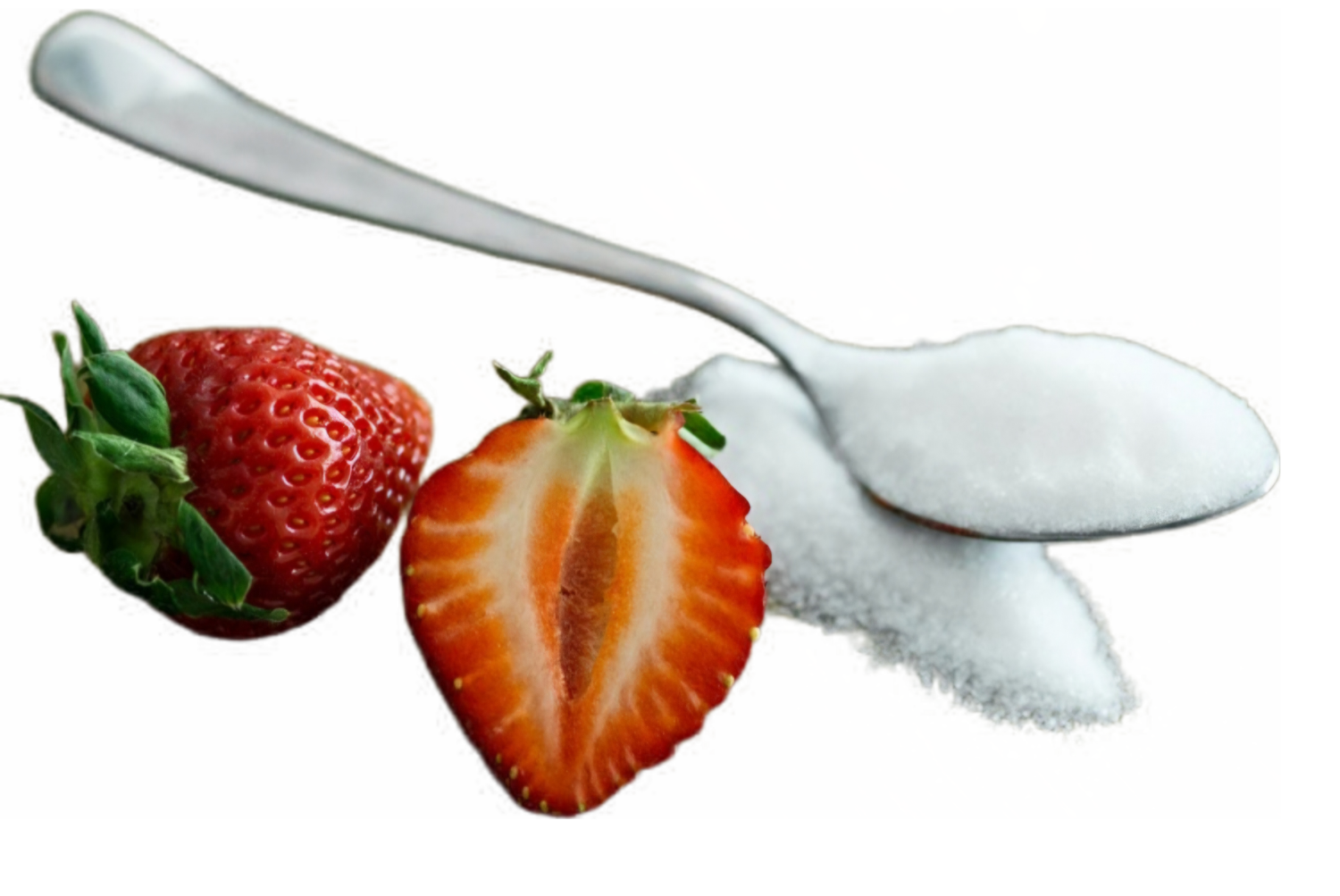
Chapter 4: Health Benefits of Allulose
Allulose StorePage audition
Allulose significantly reduces postprandial blood sugar spikes, especially after consuming carbohydrate-rich meals.
A 2024 meta-analysis of 126 type 2 diabetic patients found that doses of 5–15 g/day reduced TAR (time above target blood glucose) by 8.8% and improved glucose AUC (area under the curve).
Its mechanisms
- Inhibition of intestinal glucose absorption: through inhibition of GLUT2 transporters.
- Reduction of hepatic glucose production: Reduces hepatic glucose output by up to 10–15%.
- Increasing GLP-1 levels: Stimulates insulin production and reduces appetite.
Clinical studies have shown that a 12-week course of allulose resulted in a 0.3–0.5% reduction in HbA1c in diabetic patients.
Weight loss and fat burning
Allulose helps with weight loss through a dual mechanism of action:
- Low calorie content: 0.4 kcal/g vs. sucrose 4 kcal/g.
- Stimulation of fat oxidation: Stimulates fat breakdown by activating AMPK.
A 12-week Korean study in 121 overweight adults showed that 14 g of allulose per day resulted in a 3.2% reduction in body fat percentage and a reduction in subcutaneous fat (under the skin) based on CT scans.
In animal studies, mice fed allulose accumulated 23% less fat over 15 weeks.
Liver health and non-alcoholic fatty liver disease
Allulose inhibits the development of fatty liver by reducing the expression of genes (e.g. SREBP-1) that influence liver fat synthesis.
In a 48-week human study, doses of 5–15 g/day improved liver enzyme levels (ALT, AST) and reduced liver fat content as measured by ultrasound.
Other mechanisms
- Activation of PPAR-α receptors: Stimulates the oxidation of fatty acids.
- ROS (reactive oxygen species) scavenger effect: Reduces oxidative stress in liver cells.
- Antioxidant and anti-inflammatory effects.

Allulose has the ability to neutralize free radicals, which reduces the risk of many chronic diseases
- Increasing SOD and catalase activity:
30% higher antioxidant enzyme activity in rats treated with allulose.
- Inhibition of proinflammatory cytokines:
Decreased TNF-α, IL-6 and MCP-1 levels in in vivo studies.
A 2023 in vitro (test tube, Petri dish, or other laboratory device) study reported that allulose protects intestinal epithelial cells by inhibiting the TLR4/MyD88/NF-κB pathway, thereby reducing inflammation.
Preventing tooth decay
Allulose does not support the growth of Streptococcus mutans bacteria, which are the main cause of tooth decay.
According to a clinical study, solutions containing allulose do not reduce the pH of dental plaque below 5.7, unlike sucrose.
In addition, allulose inhibits glucan synthesis, which prevents the formation of bacterial plaque.
Gut flora and digestion
Although allulose is metabolized to a limited extent by the gut flora, some research suggests that it may promote the development of a healthy gut microbiome:
- AlsE enzyme deficiency:
Only 15.8% of the human microbiota is able to utilize allulose.
- Reinforcement of tight junctions:
It increases transepithelial electrical resistance (TEER) in the Caco-2 cell model.
Comparison with other sweeteners
| Parameter | Allulose | Erythritol | Stevia |
| Tooth decay | Does not cause | Does not cause | Does not cause |
| Liver fat reduction | Yes | No data | No data |
| GLP-1 stimulation | Yes | Not | Not |
| Thermal stability | Up to 200°C | Up to 160°C | Up to 120°C |
Summary
The health benefits of allulose occur on several levels:
- blood sugar stabilizer,
- fat burning stimulant,
- hepatoprotective and
- Its anti-inflammatory effects are unique among sugar substitutes.
Clinical data support its use in diabetes, obesity and metabolic syndrome, while its safety profile and technological properties enable its widespread use.
It is expected to play a key role in the preventive food and functional food market in the future.

